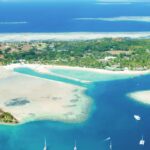Experts warn of wider confrontation involving neighboring states
The conflict between Russia and Ukraine has recently seen a significant escalation, as Russian forces attempt to repel the largest incursion into their territory in decades by Ukrainian troops. This escalation, resulting in severe civilian injuries and thousands evacuated from the Kursk region, will further complicate the situation on the battlefield, and potentially trigger a broader confrontation involving NATO and neighboring countries, experts said.
Ukrainian President Volodymyr Zelensky confirmed for the first time on Saturday that Ukrainian forces were behind the surprise attack on Tuesday that reportedly saw Ukrainian troops piercing as deep as 20 kilometers inside Russia’s Kursk region, Reuters reported on Sunday.
Russia on Saturday launched what the national anti-terrorism committee called “counter-terror operations” in three border regions – Belgorod, Bryansk and Kursk – adjoining Ukraine to halt Kyiv’s biggest cross-border offensive. Moscow on Friday also increased its state of emergency level to “federal,” France 24 reported.
The Russian Defense Ministry said on Sunday it has destroyed 14 Ukrainian drones and four Tochka-U tactical ballistic missiles overnight over the Kursk region, and 18 drones over other Russian regions that Ukraine frequently attacks, according to Reuters. A missile strike has destroyed a Ukrainian command-and-control center in Kursk on Saturday, the ministry claimed, releasing video of the strike, RT reported.
Acting Governor of the Kursk region Alexey Smirnov reported that 13 people were injured as a result of a Ukrainian missile falling on a residential building, two of whom are in serious condition, TASS reported on Sunday.
More than 76,000 people have been evacuated from the Kursk region, Reuters said.
“The attack came as quite a shock to Russia as it is the first time Ukraine has launched a deep attack into its neighbor’s territory since the conflict began in 2022. This kind of attack by another country on Russian soil has not been seen since World War II,” Yang Jin, an associate research fellow with the Institute of Russian, Eastern European and Central Asian Studies at the Chinese Academy of Social Sciences, told the Global Times on Sunday.
The latest developments on the battlefield suggest that Ukraine’s military still has relatively strong strategic capabilities and is able to mobilize large number of troops to launch a sudden attack, Yang said, and this has brought a notable change in the dynamics between the neighboring states.
Russia is expected to respond forcefully in the coming days, observers said, while anticipating more complex direct confrontations between the two sides.
The Russian Defense Ministry claimed on Saturday that Kiev has so far lost up to 1,100 troops and 140 armored vehicles in Kursk, RT reported.
Meanwhile, a Russian plane-launched missile that struck a shopping mall in Ukraine killed at least 14 people and wounded 44 others, authorities said, per media reports.
Belarus sent more troops to reinforce its border with Ukraine on Saturday, saying Ukrainian drones had violated its airspace in the course of Kiev’s military incursion into Russia, Reuters reported.
Belarus’ Foreign Ministry summoned Ukraine’s charge d’affaires, demanded measures to ensure such incidents would not recur and suggested a repeat would prompt Belarus to consider whether Kyiv’s diplomatic presence in Minsk was “appropriate,” Reuters reported.
Yang warned of a potential conflict spillover if Belarus becomes more deeply involved, and the possibility of NATO joining the fight cannot be ruled out.
In light of the ongoing crisis that is in full escalation, China, as a responsible major country, is firmly committed to finding a political solution to the crisis. According to the Chinese Foreign Ministry, China sent Special Representative of the Chinese Government on Eurasian Affairs Li Hui to visit Brazil, South Africa and Indonesia. Starting from July 28, he carried out the fourth round of shuttle diplomacy on the crisis, further exchange views with major members of the Global South on the current situation and the process of peace talks, discuss with them the de-escalation of the situation, and accumulate conditions for restoring the peace talks.
GT




